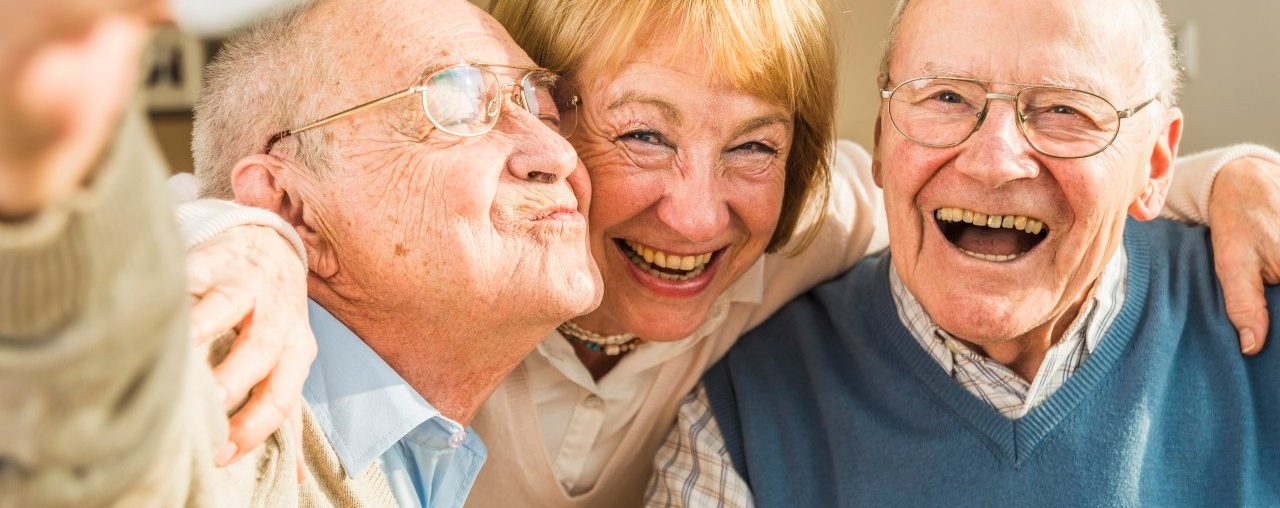An Active Social Life Is Important to Well-being

From adolescence on, an active social life makes for a better life overall.
You will do better as you age with a social network around you, a recent study found.
Staying active socially despite health-related challenges appears to help lessen the decline in well-being people often experience late in life.
“Our results indicate that living a socially active life and prioritizing social goals are associated with high late-life satisfaction and less severe declines toward the end of life,” said study lead author Denis Gerstorf, PhD, of Humboldt University.
YOU MIGHT ALSO LIKE: How to Eat Healthy as You Age
Interestingly, while low social participation and lack of social goals independently were associated with lower levels of well-being, when combined the criteria each magnified the other’s effect.
Valuing and pursuing social goals may contribute to well-being by boosting feelings of competence, concern for the next generation, and belonging, said Gerstorf. Similarly, investing your remaining physical and psychological resources into socially oriented activities can be advantageous at a number of different levels.
“A socially engaged lifestyle often involves cognitive stimulation and physical activity, which in turn may protect against the neurological and physical factors underlying cognitive decline,” said Gert Wagner from the German Institute for Economic Research, one of the co-authors.
As to why family-oriented goals did not appear to lessen the decline in well-being, Gerstorf said it may have to do with the complexity of family relationships later in life, but more research would be required to determine it.
"Family life is often a mixed bag and represents not only a source of joy, but also of worry and tensions, stress, and sorrow. For example, valuing one's partner often makes people vulnerable to declines in well-being when the partner suffers from cognitive or physical limitations," said Gerstorf.
Another study found that the benefits of social interaction begin early in life and definitely accrue. That study found “that close, supportive relationships are especially important to physical health in adolescence and old age,” wrote Megan Scudellari.
“In adolescence, social isolation is equivalent to the effects of getting no exercise,” said Kathleen Mullan Harris, a sociologist at the University of North Carolina at Chapel Hill and senior author of the study. “The lack of social connections in old age is equivalent to having diabetes, in terms of increasing hypertension.”
Overall, the fewer social connections a person had, the poorer their health, and vice versa. “With each additional social connection that you have, you get an added beneficial effect for your health,” says Harris. “The more, the better.”
There is no doubt that social factors impact physical health, says Harris. She encourages parents to have their children participate in social groups – not just ones they excel at but any shared activities that involve social interaction. “A friend a day could keep the doctor away,” Scudellari wrote.
College social life can predict your well being at midlife as well, according to a study by the University of Rochester.
“In fact,” said lead author Cheryl Carmichael, who conducted the research as a PhD candidate in psychology, “having few social connections is equivalent to tobacco use, and it’s higher than for those who drink excessive amounts of alcohol, or who suffer from obesity.”
The 30-year longitudinal study shows that frequent social interactions at age 20 serve as a blueprint that you draw on later. “It’s often around this age that we meet people from diverse backgrounds, with opinions and values that are different from our own, and we learn how to best manage those differences,” said Carmichael.
Updated:
April 07, 2020
Reviewed By:
Janet O’Dell, RN